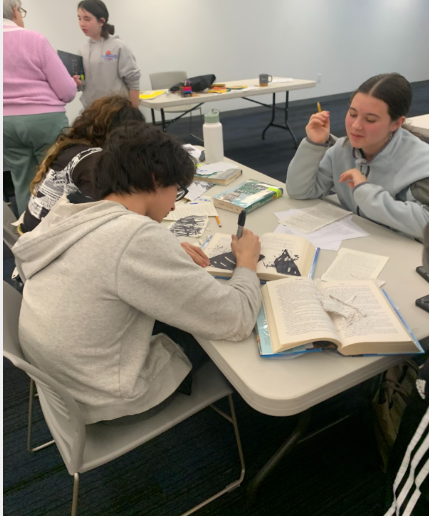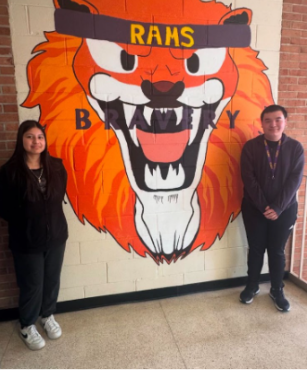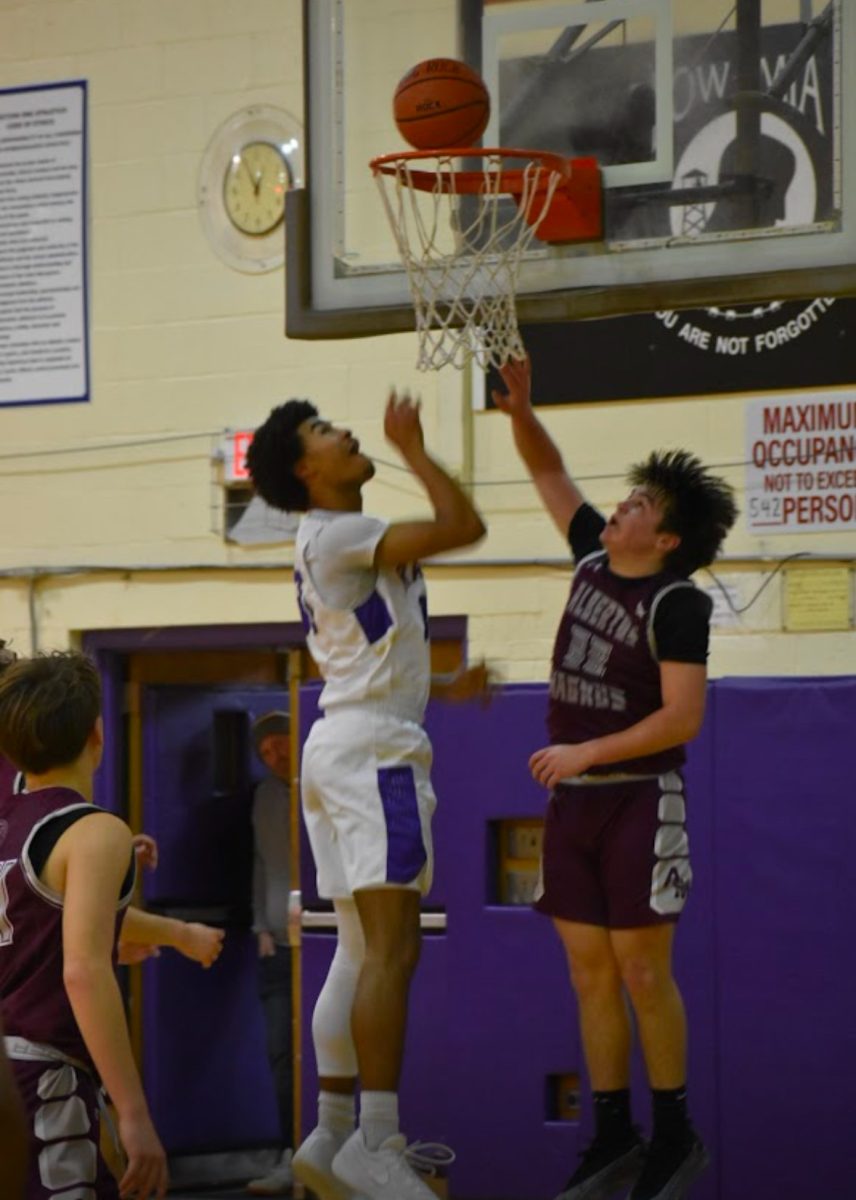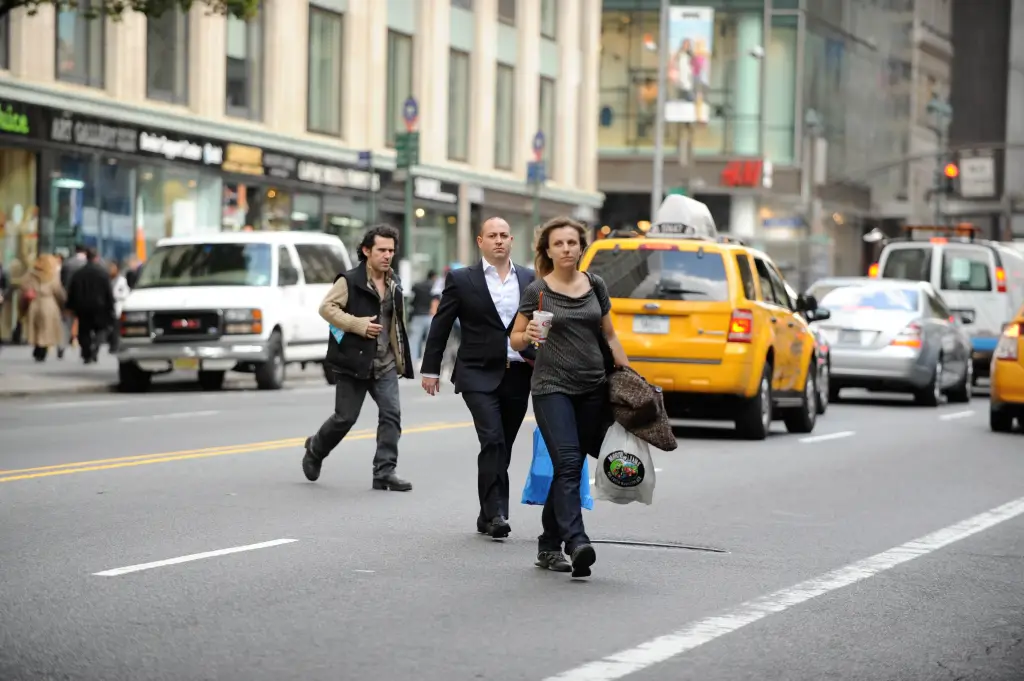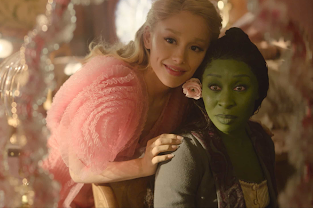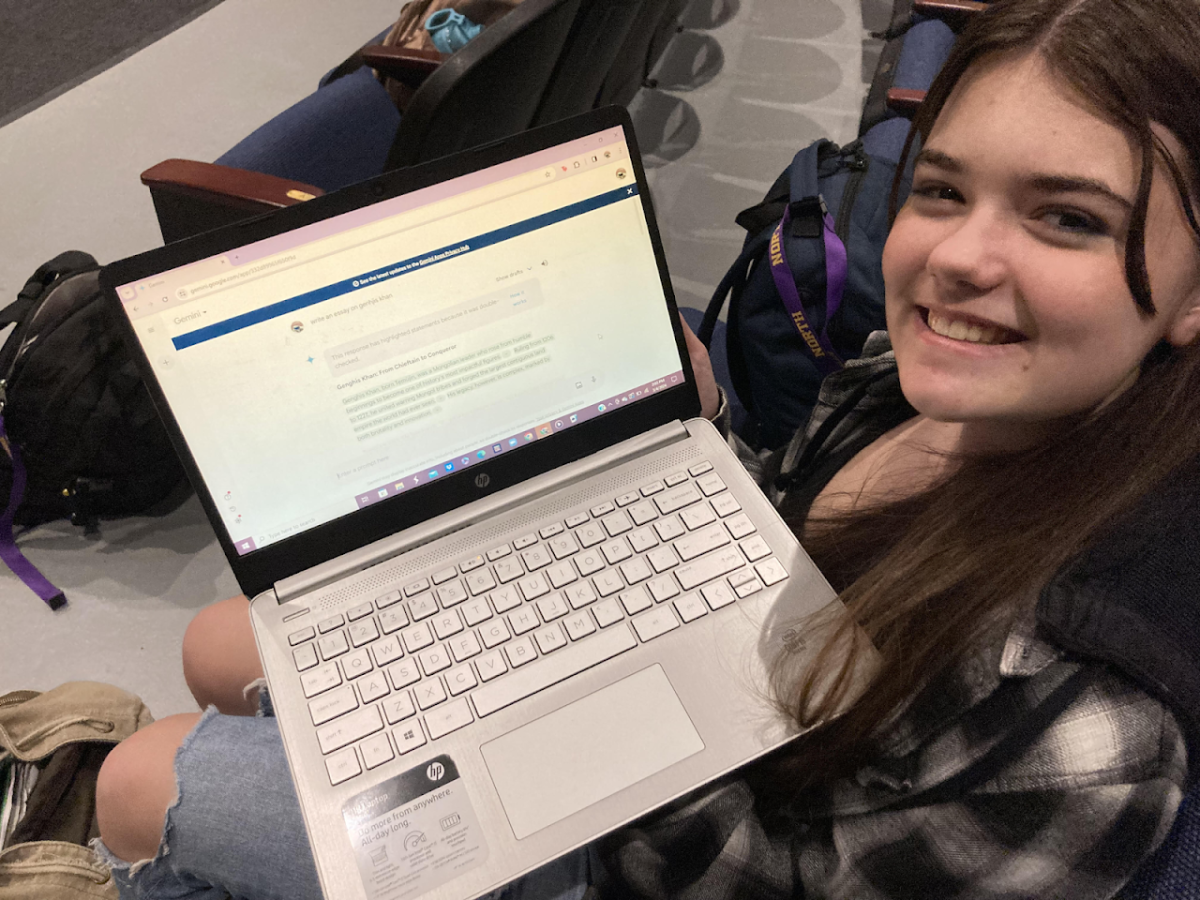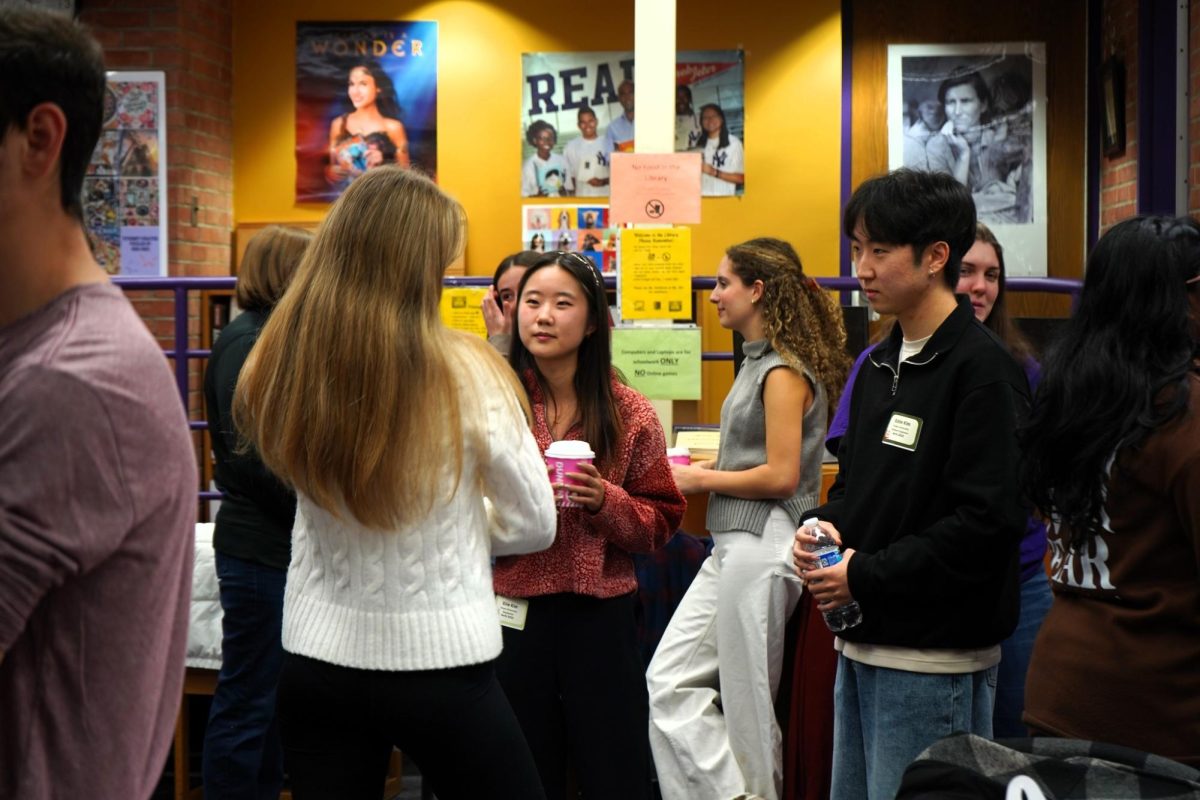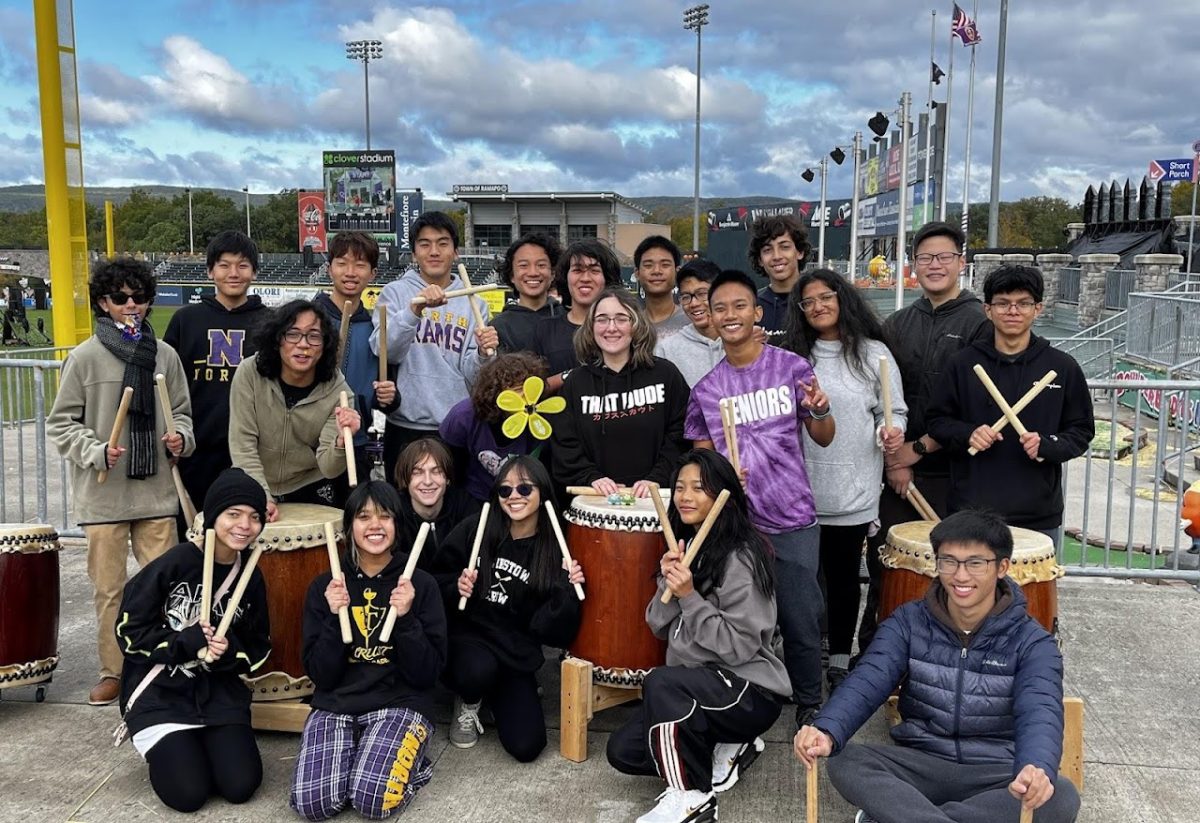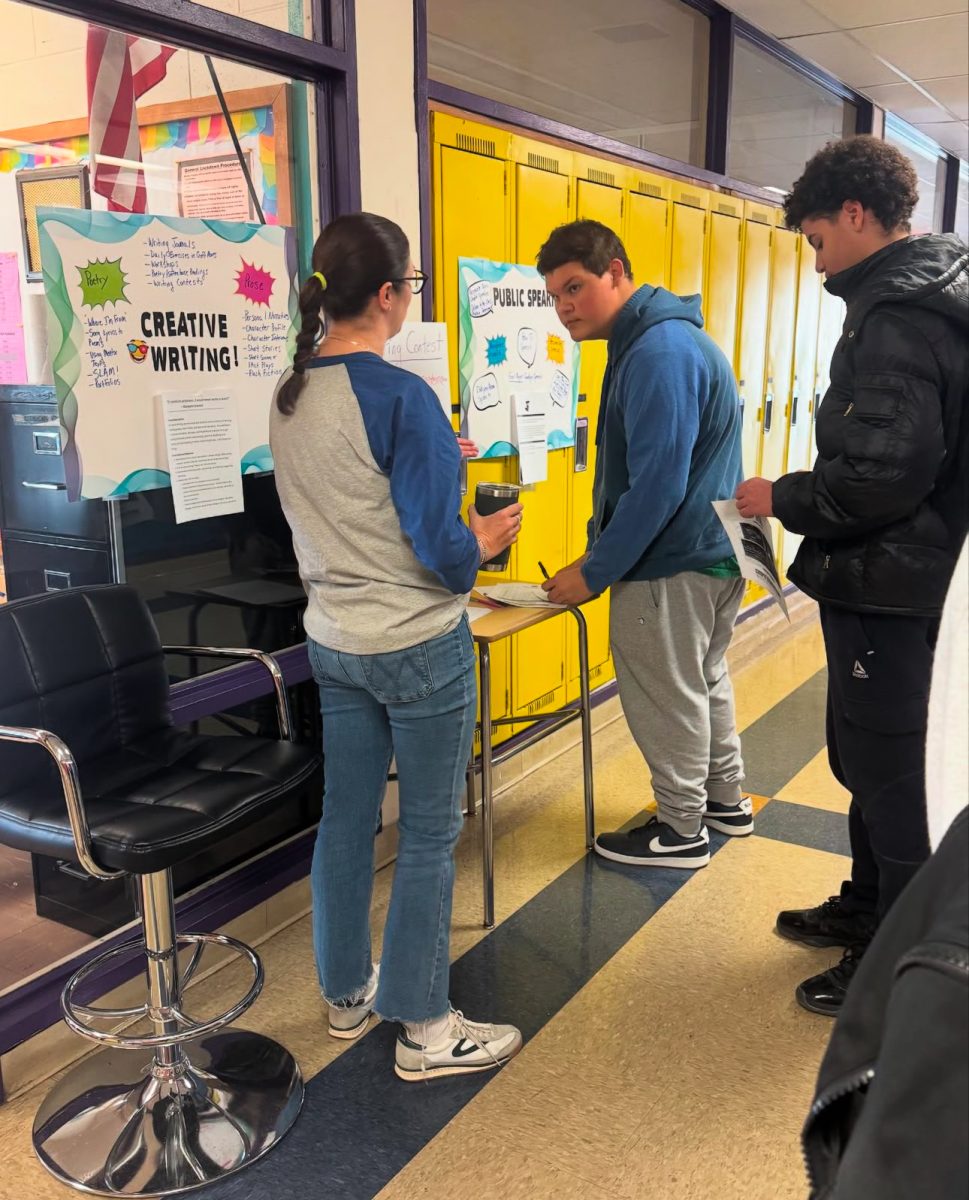As the restless crowd prepares to walk in support of the research and development of the cure for Alzheimer’s at Boulder Stadium, the unified and passionate drumming from the students of our Taiko drumming team, Mugen Taiko 無限太鼓, which is filled with ecstatic members from both the North and the South, ripples across the mesmerizing crowd of people as they venture around the stadium. Each step they take is fueled by the energy of the harmonizing roar of the drums generated by the passionate youth, pumping them up with the confidence to fight for a noble cause. For the students, it’s more than just their way of supporting the cause they find most noble; more importantly, it’s their pride in learning Japanese culture that fuels their hearts to rally the crowd, encouraging others to move forward with confidence and grace as they step forward to aid in the battle against this moribund disease.
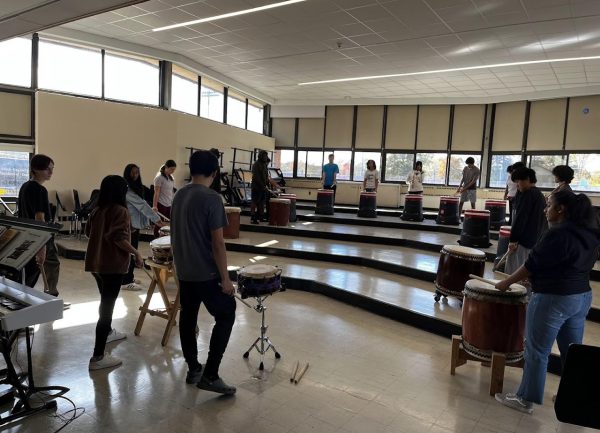
(Mrs. Uchiyama)
For some context, Taiko is a traditional form of drumming originating in Japan centuries ago, originally used as a way to rally troops in war, fueling their hearts with confidence as they fight for what they live for. As time passed, Taiko drumming became more of an art rather than military equipment as it evolved into a more ceremonious performance for both the public and the imperial court. It wasn’t until the contribution of Daihachi Ohuchi in the 1960s that the more popular form of Taiko with an ensemble called Kumi-Daiko was invented and spread across the globe.
The Mugen Taiko team, named “Mugen Taiko 無限太鼓,” consisting of members from both the North and the South High Schools, was originally founded by Mrs. Uchiyama, one of the Japanese teachers who works in both schools. Growing up in the city of Hamamatsu in Japan, Mrs. Uchiyama ventured across the globe, exploring different landmarks across the Eastern Hemisphere, ultimately entering the University of Minnesota to become a teacher, formally starting her career as a Japanese teacher here in Clarkstown in 1997. Through the combined efforts of all the Japanese teachers here in Clarkstown, they were able to help students overcome the monumental task of learning Japanese through both education and by inviting different guests to teach us more about Japanese culture through the use of the lively Japanese Club held monthly.
During her years here teaching in Clarkstown, Mrs. Uchiyama attended a festival that honored Mr. John Manjuro, who was a significant figure in aiding Japan in reopening its borders after their 250 years of seclusion from the world by translating works of literature for the Japanese to learn. This festival honored his contribution to Japan by displaying various kinds of traditional Japanese art and culture to people across the world, one of which was a Taiko performance led by their captain Mark Rooni, the son of the director of the Whitfield-Manjiro Friendship Society (the ones who organized this annual event). Through the collaboration of both of them, they were able to make the drums needed for her to learn and later down the line aid in teaching both new and old members of this club.
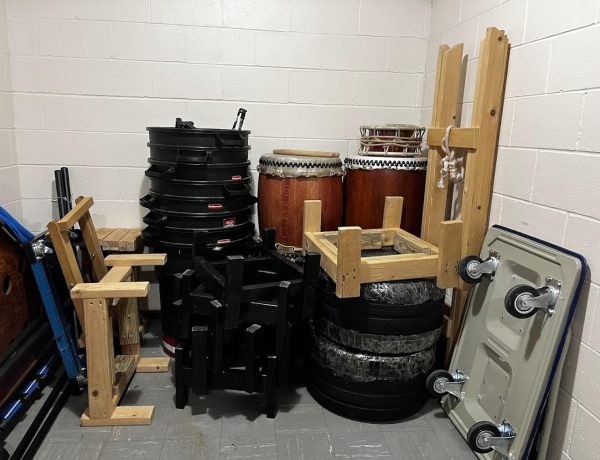
(Mrs. Uchiyama)
Through the efforts of the founding members of this team, they were able to receive a grant, giving them resources to both build and buy new drums, as well as allowing them to practice and perform in many different locations, one of the earliest of which was in a festival called Haru Matsuri, which also celebrates Japanese art and tradition, inviting people from across America to experience Japanese culture for themselves through different booths. During this festival, they performed the song “Isami Goma,” which is also one of the many songs performed in the Walk to End Alzheimer event in Boulder Stadium as well.
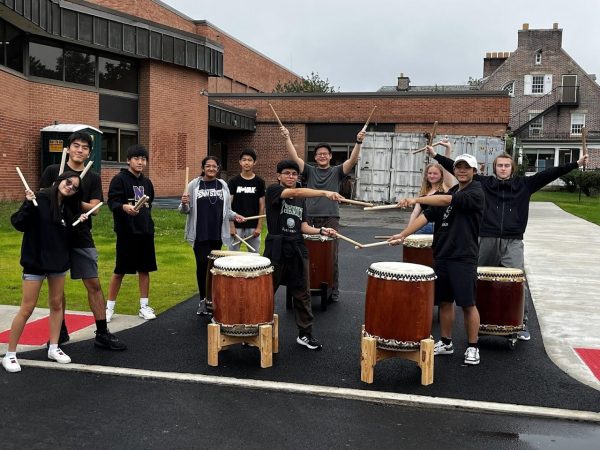
Each year, our team grows as we welcome anyone who is interested in joining our group, even for people who don’t know anything about Japanese culture. As our team grew, we were able to perform in various locations ranging from Honor Society showcases, Pep Rallies for Clarkstown North, all the way to performances in national festivals such as Haru Matsuri and many other local and statewide events. I am one of the many members of our beloved Taiko team, and all I can say about this club is that it is very welcoming to anyone in the school, even if you don’t have a sliver of an ounce of knowledge in music. Even though the sessions may be tiring for some of us, the kind teachers and members of our club support us as much as they can, making the whole experience something to remember for a lifetime. As both the writer of this article and a member of the esteemed Mugen Taiko 無限太鼓, I highly recommend anyone who is curious to try this club out and experience a part of Japanese culture for themselves, and to keep your eyes peeled for any future events that we may perform in.




